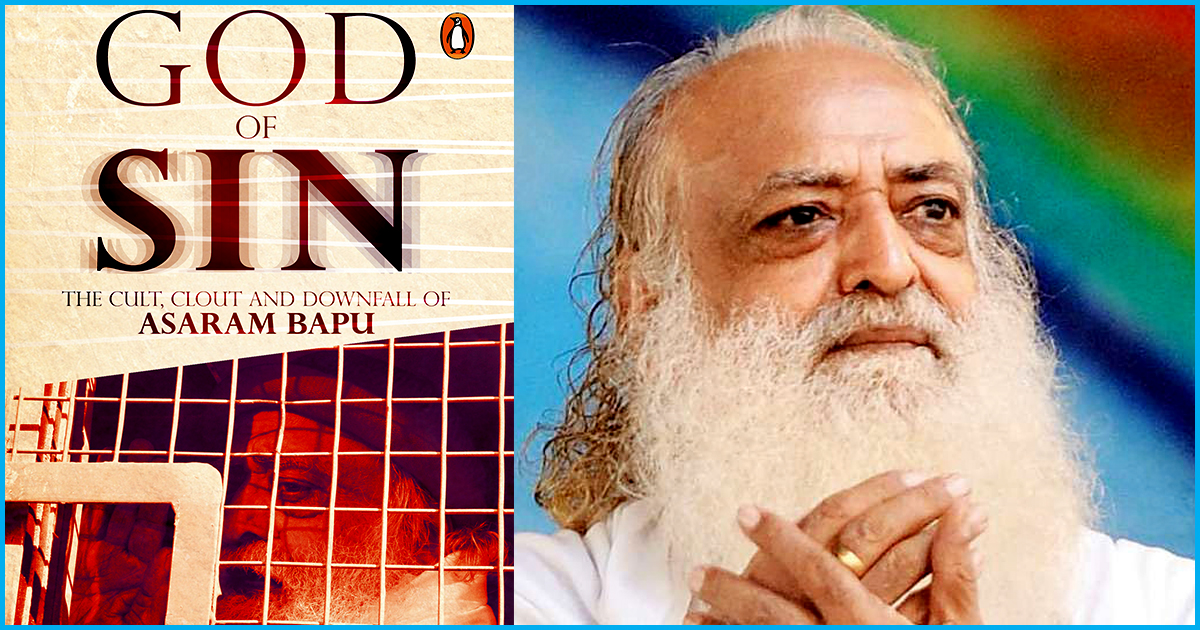I met Zubin Patel in Surat, the son of a childhood friend of Jayanti Patel’s. He told me the story of Jayanti Patel and Asaram Bapu and of another devotee, Kanti Prasada. In New Jersey, when Asaram would stay at Jayanti Patel’s place, he would conduct satsangs and would meet many people who eventually became his devotees.
As his flock grew, Asaram proposed that they form a non-charitable trust called the International Yog Vedanta Society, a name which bore a strong resemblance to its desi cousin, Asaram’s Yog Vedanta Sewa Samiti. Asaram became the president of this society, Narayan Sai its vice president and Jayanti Patel, the secretary, since they required a local name and address to register it officially.
The plan was to spread bases in the US and later in Canada too. As the secretary and a US citizen, all legal documents bore Patel’s signature. Patel claimed not to have questioned the documents he was asked to sign since it had to do with his guru’s work. Besides, he had a successful pharmaceutical business and did not have much time for society other than as an avenue for spiritual expression.
Forging will
What Jayanti Patel did not know at the time was that in the early 1990s, a married couple, who were Canadian nationals of Indian origin, Kanti Prasada and his wife, had gifted the land for an ashram in Indore to Asaram. They passed away together at the ashram in 1993. Prasada’s family later claimed that they had not been told of their parents’ death.
Kanti Prasada also owned property in Toronto, and in his will dated June 1992, he had chosen his daughter, Usha Prasada-Kole, as the administrator of his estate. But after his death, Asaram produced a will dated August 1993, according to which the Godman claimed that Prasada had willed the property in Toronto to him as well.
The heir of Kanti Prasada did not travel to India to challenge the ‘gift’ of land in Indore. But, they drew a firm line when it came to the property in Toronto and challenged it. The will that Asaram had produced was filed through the International Yog Vedanta Society and bore the signature of Jayanti Patel. While Asaram and Narayan Sai were in Canada, they were served summons to appear before the General Division Court in Ontario, Toronto, which they did not heed.
Jayanti Patel, who had sponsored the International Yog Vedanta Society, was made a party in the civil dispute of which he had neither any idea nor would have suspected the origins of. The court in Toronto examined both the wills and decided the one produced by Asaram’s trust to be fake.
‘This court adjudges and declares that the signature on the 3 August 1993 will is not the signature of Kanti Prasada, deceased, and that the will was not duly executed by him,’ wrote the judge in her 9 September 1997 order. Canadian law would have required forensic examination by handwriting experts at the time. It is not known if that was done.
Who is going to pay?
Whatever the court’s reasoning may have been, it imposed the cost of 321,593.41 Canadian dollars on Jayanti Patel, recoverable with interest at the rate of 5 per cent per annum from March 1998. Applying the approximate currency exchange rate of 1998, this amount came to around Rs 9 crore at the time.
In 2000, the Prasada heir moved a court in New Jersey to have the Canadian court’s judgment executed and recover the amount owed to them. The New Jersey court froze Jayanti Patel’s assets and attached his properties in November that year. He called his guru and asked for the money.
At first, Asaram told him that he would arrange the money but after a few calls, he changed track. Money and materialism were ‘moh maya’ (worldly desires), the Godman told Patel. Thereafter, he stopped responding to Patel’s calls and instead, his aides would respond with threats.
So, Jayanti Patel filed an affidavit at the court in New Jersey and cried his heart out, claiming his was a vicarious liability. ‘Not only are the plaintiffs undeserving victims but so am I,’ he wrote and suggested that the court find a way to drag Asaram to the US.
Patel said he had no idea that of the many papers that he had signed as ‘secretary’ of the International Yog Vedanta Society, one would be a forged will, which, he wrote, Asaram’s aide Jagdish Vyas had asked him to sign. He did not know Prasada, nor of the plan of taking over his property in Canada.
‘No option but to beg for fairness’
Asaram had attempted to replicate the Indian model of running his organization in North America. While he had used the International Yog Vedanta Society for one set of activities, he had also set up another trust called Shri Yoga Vedanta Ashram, which allowed him to purchase a property in New Jersey worth far more than the 3,21,594 Canadian dollars that he owed the Prasada heirs. It also enabled him to evade liability in the Canadian court’s decree.
Jayanti Patel had no option but to beg for fairness. He had worked hard all his life, only to find his savings taken away rudely from him, all because of his faith in a godman. He also counter-sued Asaram for fraud. However, he ultimately had no option but to liquidate some of his assets to pay the amount to the Prasada heirs.
So, Patel made a trip to India. Before Jayanti Patel’s pockets became lighter by Rs 9 crore, he used to stay for at least a month at the ashram during each trip to India. His North American credentials had bought him a ticket into the godman’s inner circle. On his trip to recover his money from the godman, Jayanti Patel found himself barred not only from the godman’s core group but also from entering the ashram.
‘Eventually, he (Jayanti Patel) was disheartened and stopped coming to India for quite some time,’ Zubin Patel told me. ‘He gave up hope of recovering the money and would not speak of it. That was till 2013; the arrest of the two godmen in rape cases gave him some confidence and I was asked to approach the police and register a criminal complaint.’ Jayanti Patel’s complaint to the Surat police is still pending. In it, he charged Asaram of swindling him in the name of faith and exploiting his trust in him.
He said that till 2014, he had been unable to file a criminal complaint because Asaram was a ‘very heavy-headed influential personality who claimed to have many political and mafia connections, had extorted me and put me in fear of injury…’ Patel claimed that ‘the forged will was prepared by both the accused [Asaram and Narayan Sai] in criminal connivance’. Had the Canadian court’s decided interest rate (of 5 per cent per annum) been applied, Asaram would owe him Rs 24 crore today. If you apply exchange rates and inflation surges, the amount would be even higher.











